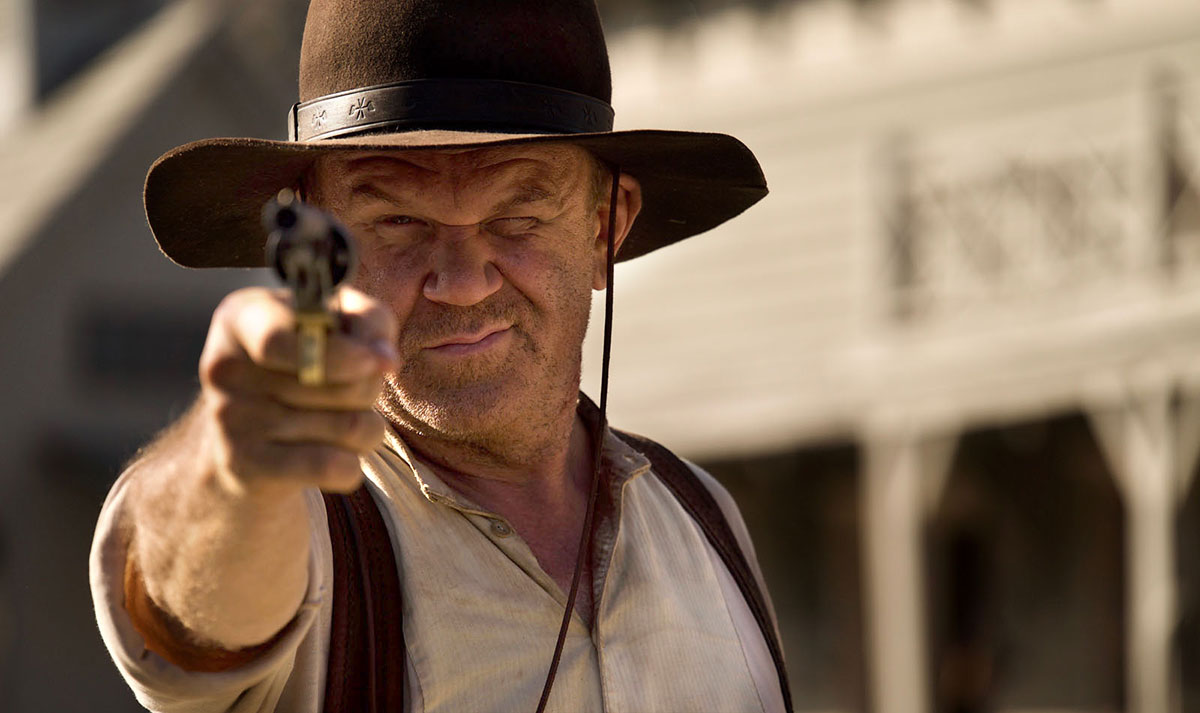While all are fine movies, one of the finest performances of the year is not in “A Star Is Born,” or a Damien Chazelle, Barry Jenkins or Alfonso Cuaron movie. No, one of the finest performances of the year is in the quirky, disarmingly tender Western “The Sisters Brothers” by French filmmaker Jacques Audiard. Your mind jumps to Joaquin Phoenix, who plays one of the titular siblings in Audiard’s picaresque dramedy—it’s funny, melancholy, brutalist and layered— and yes, JP is great. But actually, the movie may really belong to Eli Sister, the pushed-to-the-side older brother played by the Academy Award-nominated John C. Reilly.
It’s one of the best performances of Reilly’s career, leveraging his eclectic career and experience in drama and comedy and his extensive work with some of the world’s greatest filmmakers—Paul Thomas Anderson, Lynne Ramsay, Terrence Malick, Yorgos Lanthimos, and more.
READ MORE: Joaquin Phoenix Talks ‘The Sisters Brothers,’ Trauma, Empathy & Masculinity [Interview]
In “The Sisters Brothers,” Reilly plays one half of an infamous duo of assassins, the Sisters brothers. He plays the older brother of Charlie Sisters (Phoenix), who begins to awaken to the idea of life beyond bloodshed. His is a journey of discovering empathy and it’s told with a dark, violent, comedic Western that on the surface is an entertaining ride. But as Reilly himself says—and he helped shepherd this labor-of-love project himself—there’s a lot to unpack in the surprisingly emotional and tender “The Sisters Brothers.” It’s a movie that considers the intimacies of brotherhood, both by blood and the harmonic unison of people, the traumas we face, and the notions of our civilization—what kind of civilization do we want and what kind of people do we want to be as people, and in this instance, as men, who live in it.
READ MORE: 55 Must-See Films: The 2018 Fall Movie Preview
In the cruel, inhospitable 1800s of the American West, merciless reigns, but “The Sisters Brothers,” which has a nicely contoured, but subtle humanistic political bent to it, asks us to consider if there’s more to life. I spoke to Reilly just before the movie was about to hit in very limited release.
So, I’m not sure people realize, but this film is your baby. Your company produced it.
Yeah, “my company,” meaning myself and my wife [laughs]. Alison Dickey, my wife, produced the movie. We were working on an independent film called “Terri,” directed by Azazel Jacobs who was good friends with [“Sisters Brothers” author] Patrick DeWitt and “Terri” was based on a manuscript that Pat had written, he was going to turn into a book and then decided just to transition it right to a screenplay. We asked Pat, “You got anything else?” And so we eventually bought the rights to “The Sisters Brothers” before it became a book. Then it was published to great acclaim and Pat and I wrote a draft of the script together and then we approached Jacques Audiard and I think he couldn’t quite believe it.
Audiard was surprised?
Yeah, me and Allison, these two Americans just appear one day in Toronto and said, “Will you come have lunch with us? We have a project you want to talk about,” and we laid this thing at his feet. “Here’s a book. We have the rights to it. Here’s a script. We wrote it, do whatever you want with it. We’re hoping I’ll be in it. But other than other than that, I want to give you total freedom.”
Ha, you bumrushed him and he went for it, that’s amazing.
He develops and writes his own stuff normally [editor’s note: Audiard rewrote it]. I took a few years to put it together. And it was a lot of conversations between [production companies] in France and America and we shot in Spain and Romania and France.
It was exciting and difficult with all these different countries involved. At a time when people are focused so much on how we’re so separated and how the world is in conflict, it was inspiring thing to be able to go work with a group of Belgians and French people in Spain with American actors and all of us just with this labor of love and putting our best feet forward. We created this thing together; it was a really beautiful experience.
That sounds so awesome. So homegrown too.
And it’s the only time I’ve ever done this. I don’t read a lot of fiction books because of all the scripts that I have to read, but this amazing manuscript: I read it in 24 hours. It’s such a page-turner, I just whipped through it. It’s also a whole other experience besides the film—the film is inspired by it and it definitely has the tone of the book, but the book is something else. I highly recommend it.
How are they different?
Well, in the book, it’s a much more internal experience because most of the book is told through Eli’s thoughts. One of the great features of the film is that you get a sense of the emotional life of these guys in the story and that’s kind of a revelation for a Western. Most Westerns, you don’t know what the guys are thinking on a whole, especially what they’re feeling. Westerns emotionally are usually very kind of opaque, a front of tough guys.





